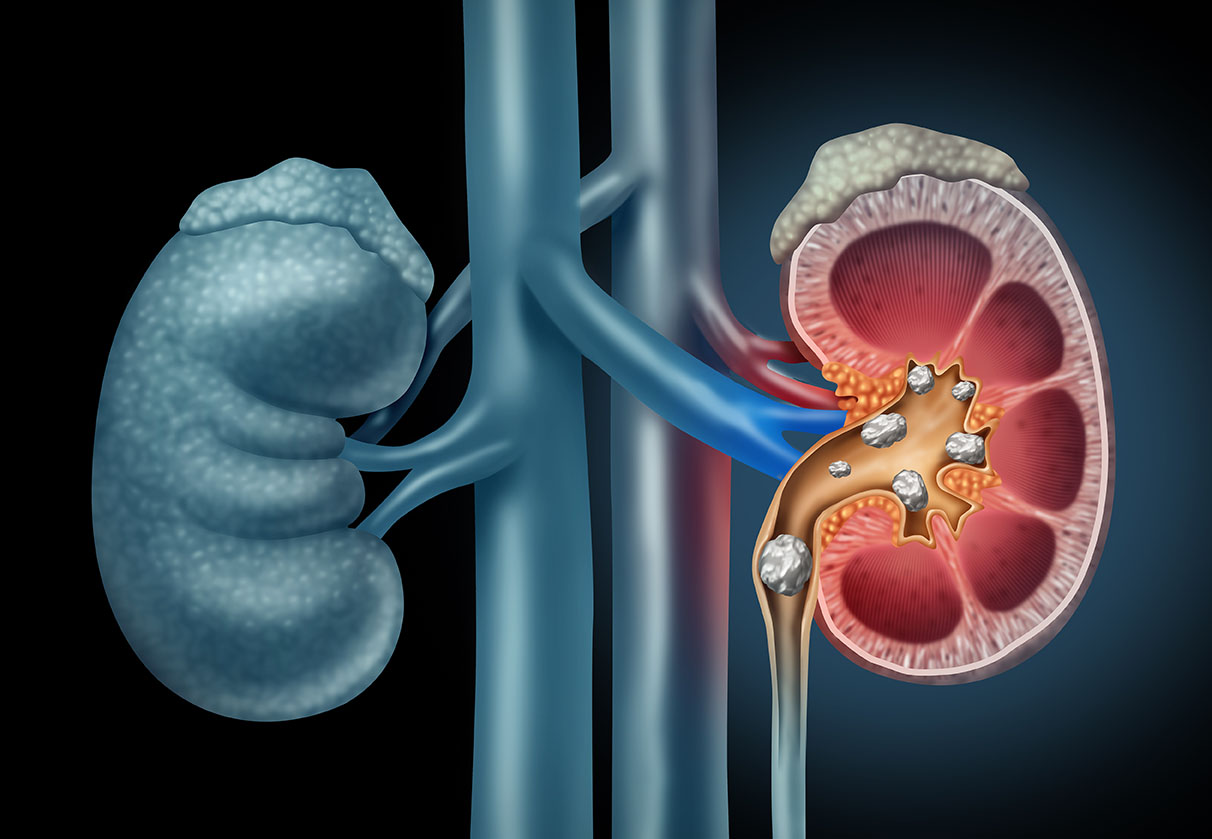

The kidneys are two bean-shaped organs that are located in the retroperitoneal space, on either side of the spine, below the rib cage. They are responsible for filtering the blood, removing waste products, and regulating blood pressure.
The kidneys are made up of millions of tiny filtering units called nephrons. Each nephron consists of a glomerulus, which is a ball of capillaries, and a renal tubule. The glomerulus filters the blood, and the renal tubule removes waste products and reabsorbs water and other important substances.
The kidneys also produce urine, which is a liquid that contains waste products from the blood. Urine is carried from the kidneys to the bladder by the ureters. The bladder stores urine until it is time to urinate.
The kidneys are essential organs for life. Without them, we would not be able to remove waste products from our blood or regulate our blood pressure. As a result, we would quickly become sick and die.
The kidneys are responsible for filtering waste products from the blood.

Noun: kidney (plural: kidneys).
an organ that filters waste products from the blood.
Adjective: renal.
relating to the kidneys.
Verb: to kidney.
to transplant a kidney.
The word "kidney" is of uncertain etymology. It is thought to be derived from the Old English words "cwið" and "ey", which mean "womb" and "egg" respectively. The word may have been used to describe the kidneys because of their shape, which is similar to a womb or an egg.
Where can your kidneys be found?
Question:
Describe the function and importance of the kidneys in the human body. Explain how the kidneys maintain homeostasis by regulating water and electrolyte balance, filtering waste products, and controlling blood pressure.
Answer:
The kidneys play a vital role in maintaining the body's internal environment through their multifaceted functions. They are responsible for filtering blood to remove waste products, regulating water and electrolyte balance, and controlling blood pressure.
The primary function of the kidneys is to filter blood and produce urine. They remove waste products, such as urea and excess ions, from the bloodstream and excrete them through urine, helping to keep the body free of toxins.
The kidneys also maintain proper water and electrolyte levels. By adjusting the reabsorption of water and ions, the kidneys ensure that the body maintains the right balance of fluids and electrolytes, crucial for various physiological processes.
Furthermore, the kidneys play a pivotal role in regulating blood pressure. They release a hormone called renin, which triggers a series of events that ultimately help control blood pressure by regulating blood volume and vessel constriction.
In summary, the kidneys are vital organs that contribute significantly to the body's homeostasis. Through processes like waste filtration, water and electrolyte balance regulation, and blood pressure control, the kidneys ensure that the internal environment remains stable and conducive to proper bodily functions.